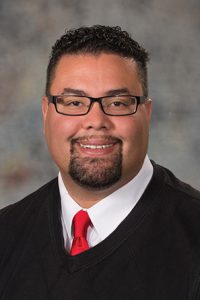African American commission proposed
The Government, Military and Veterans Affairs Committee heard testimony Feb. 13 on a bill that would create the state Commission on African American Affairs.

LB918, introduced by Omaha Sen. Justin Wayne, would require members of the commission’s 14-person board be of African ancestry. The commission would promote state and federal legislation beneficial to African Americans in Nebraska, work with similar commissions from other states and coordinate housing, education, welfare, medical and dental care, employment and other programs affecting African Americans in the state.
The bill also would require that the commission coordinate with the state Commission on Indian Affairs and the state Latino American Commission to produce a disparity study in government contracting report on or before Dec. 1, 2022.
Wayne said the Nebraska Equal Opportunity Commission was created as the “de facto African American Commission,” but the mission of that organization has significantly changed since its inception. The new commission would enable the Legislature to “get unbiased information on what’s going on in our community,” Wayne said.
William King, owner of a radio station in Omaha, testified in support of the bill. He said the African American community needs data to assist small-business development and create jobs.
“We need a body in order to do that,” King said.
Yusuf Kafele, testifying on behalf of Black Men United of Omaha, spoke in support of LB918. He said creation of a commission would help African Americans feel more engaged with government.
“This commission … gives us as African, black people in the community the rehearsal to power,” Kafele said. “We need something to galvanize us.”
Lazaro Spindola, executive director of the Nebraska Latino American Commission, also testified in support. He said African Americans in Nebraska have lower educational achievement, higher unemployment and higher poverty levels than whites. A commission would help address these issues, he said.
“These types of disparities have existed since the beginning of our state,” Spindola said. “What African Americans do not have is a state agency that will educate our state representatives on these issues, study the underlying causes, propose programs and policies to solve them, analyze whether the solutions are effective and report to the Legislature on the results.”
No one testified in opposition to the bill and the committee took no immediate action on it.

